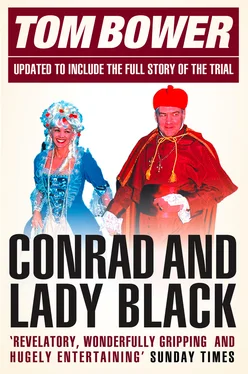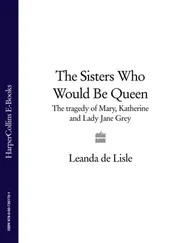There was a distinctive aspect to Black’s crime. His home environment – the vengeful father, the ineffectual mother and his solitary adoration of history’s heroes – had created an individual who worshipped bronze effigies. Steeped in the blood and glory of history’s heroes, Black’s self-glorification justified trampling on the weak. In his philosophy, society’s masters were permitted to break laws. Veering off the beaten track was imbued in his character. With that notion implanted in his mind, he had lost the only impediment to committing a major crime – a conscience. Black the schoolboy imagined himself to be an unacknowledged genius entitled to break the law. ‘I am neither proud nor ashamed of what happened,’ he wrote. ‘It was an awful system whose odiousness was compounded by banality and pretension.’ 13
George Black excused his son as a ‘compulsive insubordinate’ eager to prove his credentials as a capitalist. 14 The school rejected that explanation, believing that the father was blind to his son’s reckless disregard for rules and morality. Spared any proper parental reprimand, Conrad waited for his mother and father to find a new school. Lonely, he remained in his bedroom listening to long-playing gramophone records of Franklin D. Roosevelt winning the wild applause of a crowd in Madison Square Garden for denouncing American capitalism, the rich and politicians’ deviousness, on his way to becoming President. Roosevelt, he would say admiringly, was a misunderstood hero, defiantly ignoring his physical paralysis to shape the world’s future.
Over the next four years Black passed through two more schools – leaving each because of misbehaviour – before being coached in a crammer to scrape a pass in his final school exams in 1962. His mediocrity reflected his laziness. His reliance on his father’s indulgence and finances was reflected in his unwillingness to focus on his study of journalism and then history at Carleton University in Ottawa, an inferior college. Lodging at the expensive Savoy Hotel in Ottawa rather than in student accommodation, he spent his days sleeping or listening to parliamentary debates, and sharing the hotel restaurant in the evening with senators. The consequence was inevitable. During the summer holidays in 1963, while he was visiting historic and literary sites in France with his elder brother Monte, the college warned that he risked expulsion. His schoolboy notions of genius had been shattered. Laziness had bred failure. Instead of returning to study he remained in France as a tour guide, and later travelled to Spain to meet Brian Stewart, a Canadian friend.
Black arrived in Spain depressed, admitting his inability to cope with life’s normal challenges. His initial escape from despair was to read a biography of the American newspaper tycoon William Randolph Hearst, the model for Orson Welles’s Citizen Kane. The combination of politics, history and power appealed to a dilettante seeking a purpose. In his fantasy, the ostracised upstart dreamt about basking in public adoration. Whatever he said would be believed because he uttered the last, irrefutable word. Undecided whether he should become a historian or try to earn some money, he resolved at least to overcome his laziness and improve his performance at college.
Back in Ottawa, Black had the good fortune to meet Peter White, the ambitious assistant of a minister in the federal government. Through White, six years older than himself, he was introduced to Canadian politics and politicians. At parties, political meetings and in committees, he became immersed in the country’s political system. In the era of ruptured dreams after President Kennedy’s assassination, White, Black and Brian Stewart drove to Atlantic City to witness the beginning of Lyndon Johnson’s 1964 presidential election campaign. Standing among 23,000 people stirred by Bobby Kennedy’s speech urging support for the civil rights campaign, Black sensed that he was present at a moment of history, adoring the image of a towering politician, serene among the excited masses. The theatre of leadership transformed Johnson into Black’s latest hero.
The daydreams barely changed after his graduation from Carleton University with a poor degree in 1965, and the completion of his first year of a law degree. Financed by some profits earned on the stock exchange, an inheritance of over $200,000 from his grandparents and regular income from his parents, Black spent part of his summer in Ireland with Galen Weston, the future head of the retailing family, and later drove to Eastern Europe. The news from Ottawa was bad. After failing his law exams, he had been expelled from the university. At twenty-two, he was categorised as a flop. ‘It was time,’ he decided, ‘to outgrow mischief and debauchery.’ 15
Peter White offered Black salvation – a half interest in two small weekly papers, the Knowlton Advertiser and a French-language paper, serving townships near Montreal. The investment would cost Black $500. He settled in Knowlton, a small lakeside community, and single-mindedly began editing the small-circulation newspapers. Living in a poorly heated boathouse, he spent the day struggling to find news and advertisements, and trying to master the finances of printing and distribution. At night he read Joseph Conrad and other classic authors in the hope of furthering his quest to understand life, and after midnight spoke for hours on the telephone with his father about politics, history and the stock markets. At dawn, George Black looked across the lawns to the willow trees and swimming pool, and decided to go to bed. In Knowlton, his son also went to sleep, establishing a lifelong habit of rarely rising before noon.
The escape from ‘mischief and debauchery’ was consolidated the following year, when Montreal hosted the world fair Expo 67, and General de Gaulle visited Canada. The combination of parties and witnessing de Gaulle’s provocative remark that Quebec should declare its independence from Canada taught Black, he would later claim, that he had been ‘a rather silly and undiscriminating rebel’. He enrolled for a law degree at Laval University in Quebec City, an additional challenge because he was one of few English students among the French, although this was a test he endured in comfort. He rented a superb penthouse overlooking the St Lawrence river in the fashionable Port Royal Building close to the entertainment quarter, and drove a Cadillac. Since Peter White had become an assistant to Daniel Johnson, the Premier of Quebec, Conrad Black could combine studying, social life and involvement at the heart of Canada’s political life.
As a conservative in a leftish-liberal country divided by the French and English languages, Black suffered a double frustration. The Conservatives had repeatedly failed to offer any solution to Canada’s permanent problem of containing the separatist demands of the French in Quebec; and secondly, as he was told by a Liberal politician, ‘We’re the party of government here. The Conservatives are like mumps. You get them once a lifetime.’ Nevertheless, Black engaged self-confidently in politics, supporting the English-speaking Conservatives, and to his delight people took seriously his self-conscious party pieces, cultivated since childhood. Using unusually complex vocabulary, he effortlessly recited endless historical details from memory in performances which, he persuaded himself, convinced audiences of his genius and his political acumen.
In 1969, Peter White once again offered the next step. The Sherbrooke Record , a daily newspaper with a circulation of 8,000 published near Montreal, was offered for sale. John Bassett, the owner, was distressed. His marriage had disintegrated and his investment in a new office building and new printing presses had plunged the business to the verge of bankruptcy. 16 On the eve of completing the purchase, White introduced a twenty-six-year-old business-school graduate, David Radler, into the deal. Radler, described by some as mischievous and with few pretensions, was a rough, ambitious fortune-hunter who had learned trading from his father, a restaurateur, and who had recently been selling native handicrafts from a shop at Expo 67. His ratty, sharp manner and his spartan lifestyle emphasised his preoccupation with money. In background and manner Black and Radler had little in common, but they complemented each other’s ambitions. Black wanted influence and wealth, while Radler enjoyed mastering the mechanics of creating that wealth. Black brought the vision of a strategy, while Radler was keen to sweat their assets. The chores at the Sherbrooke Record could be easily divided. Radler would be responsible for the financial management, including advertising and printing, while Black and White filled the space between the advertisements with editorial reports. They borrowed C$18,000 from a bank, and inherited thirty-two employees and a business which had lost $180,000 over the previous twenty-two months.
Читать дальше












